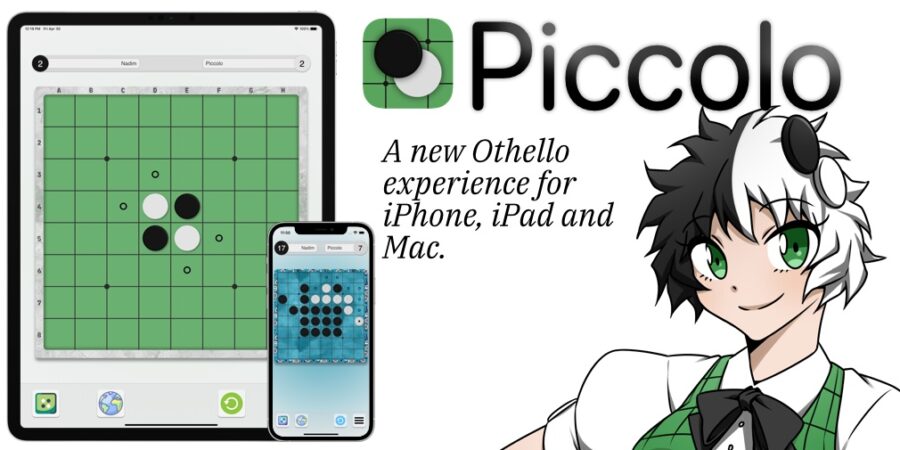Recently released for iOS and Mac, Piccolo Othello is an impressive and elegantly designed take on the traditional Japanese board game, Othello.
It is currently the most downloaded app for Mac in April, May, and June in Japan thanks to its advanced AI that will test both newcomers and experienced players, and its variety of beautiful themes. Another huge boon for the title is that it is completely ad-free, relying solely on merchandising and in-app purchases to generate revenue – a testament to the faith the Piccolo Othello’s developer has in how much its fans will love this simple yet challenging game.
We recently interviewed the game’s developer to learn more about the game and their reasons for making it. Here is what we found out.
What do you think Piccolo Othello offers that you can’t get from any other title on the App Store?
As a board game, Othello distinguishes itself from chess and Go by being very easy to pick up and learn. Also, Othello games are also generally shorter, and yet the depth of play rivals that of games with more complex rules.
The fact that the game has such simple rules and yet can create complex situations is what makes me personally like Othello so much. It’s amazing how much room there is for creative play given the ease of learning the game.
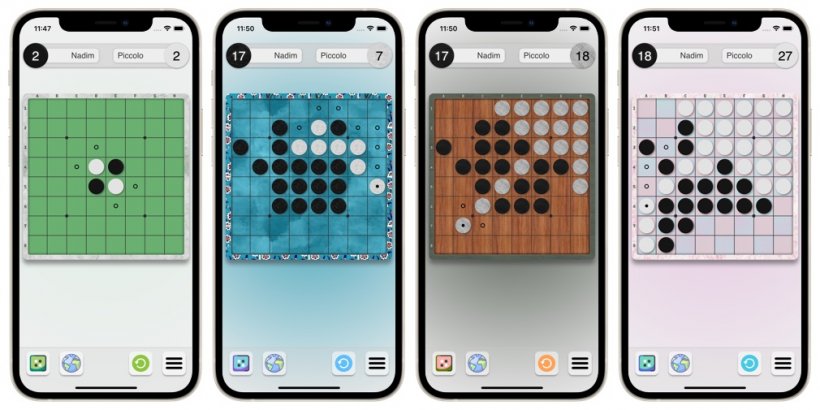
How does it distinguish itself from other Othello games?
With Piccolo: Othello, I’ve aimed at creating the most high quality Othello software available on iOS and macOS, in terms of user experience and gameplay quality, and I think I’ve probably succeeded.
I’ve been playing Othello since my teenage years and I’ve always been annoyed at the low quality of existing Othello apps on Apple platforms. Every app I tried either had too many ads, was clunky, buggy, lacked features, etc. — I’ve tried to avoid that with Piccolo: Othello by making sure the app has absolutely no tracking or advertising, that it loads directly to the game session. There’s a single in-app purchase that unlocks additional themes, and that’s it. The point of the game (and of this interview) isn’t revenue for me — I just want my software to succeed because I love my software and I like seeing people enjoying a better Othello experience.
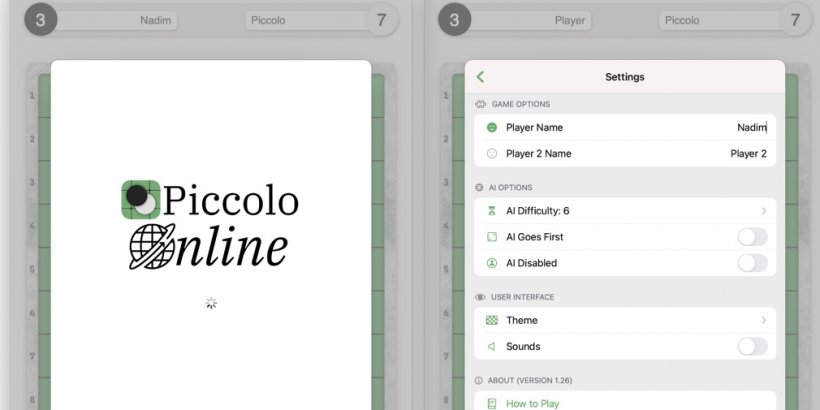
What challenges did you face during development, and how did you overcome them?
Developing Piccolo: Othello was surprisingly involved and interesting. It’s a relatively simple board game but writing the AI required studying a bunch of technical papers and existing Othello AI implementations in order to make it state-of-the art. The AI was first implemented in the Go programming language in order to target performance, but because of the nature of its tree search algorithm, I wasn’t able to benefit from its full capabilities. However, after persevering we managed to hyper-optimize it to the point where it can consider around 80,000 different board positions per second on a typical iPhone 12 device.
Aside from the AI, developing the online component was relatively simple. Designing the themes was a lot of fun and a good way to relax — I did it during the evenings as a collaborative activity with my partner. Writing the logic for the board user interface itself was tricky when it came to programming the piece flip animations: those are entirely programmatically generated, and it took an effort to make them super smooth.
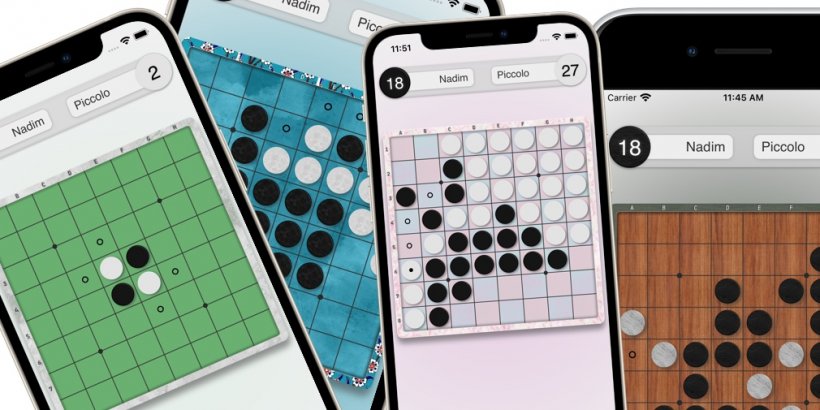
Writing this software gave me a creative outlet where I could focus very much on solving a set of programming problems in the most elegant and creative ways I could manage, and in that sense, making Piccolo: Othello felt like a lot like growing a personal garden in my backyard, or like making a nice little clock from scratch and polishing every joint. It’s nice to be able to craft something so polished.
What aspects of the game do you feel audiences will be most excited about?
I think that if people try Piccolo: Othello and compare it to other Othello apps on the App Store, they’ll quickly realize how much Piccolo: Othello respects their time and attention. There are no outrageously invasive privacy agreements to accept. No menus to go through. No tracking, no ads — it’s just the game. And not only that, but it’s a highly polished version of the game to boot. So I hope audiences will appreciate that. The auto-save feature will also make it easy for people to immediately jump back into a game after closing the app. I also think the AI will offer a suitable challenge for all skill levels.
Right now, I just finished integrating the Piccolo: Othello iMessage sticker pack, a collection of 24 (soon to be 36!) original stickers based on a cute anime-style mascot character that was designed in collaboration with artist Erica Li (https://www.instagram.com/ponshadama/). They’re really incredibly cute, and I hope that Piccolo: Othello users will enjoy sharing them.
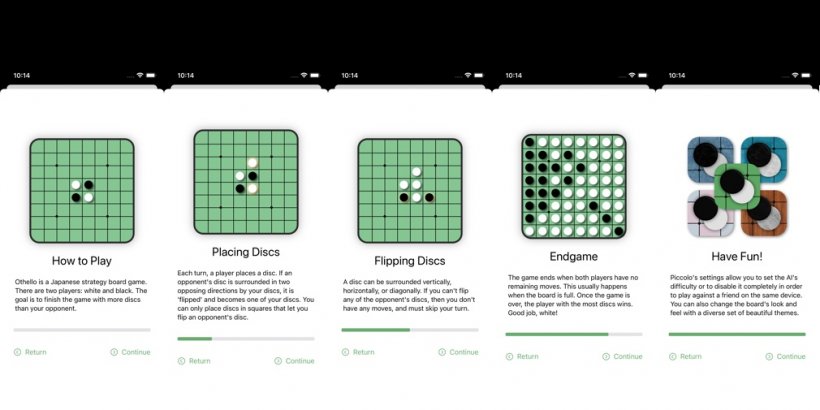
Which part of the game are you personally the most proud of and why?
I’m proud of the whole thing. I personally really enjoy writing high quality software, very much in the same way that I imagine musicians enjoy playing the piano or artists enjoy painting. It’s really the exact same kind of activity for me. Piccolo: Othello was developed over many, many weekends and was always purely a hobby activity (I’m currently the CEO of a startup that does something totally unrelated — https://capsule.social), and that just makes me all the more proud of the success that it’s encountered. It’s been the #1 most downloaded game in Japan on the Mac App Store for three months in a row!
Latest Articles | Pocket Gamer
Source link
Related Post:
- Game of Sultans: What to expect from this elegant empire simulation RPG | Articles
- Fighting Game Glossary is an elegant guide to fighting game terminology
- Abandoned PS5’s Realtime Trailer App Renamed Realtime Experience App
- Nickelodeon All-Star Brawl trailer (developed by Slap City developers)
- Battlefield 2042 Has an “Undisclosed” Multiplayer Mode Developed by DICE LA, To be Revealed at EA Play Live
- New Gundam Game Being Developed For Esports
- Solo Developed Indie OMNO Releases Later This Month
- The next South Park game will be 3D, and developed in-house
- Crossword Fans Are Mad At The NYT And Its Daily Puzzle App
- Remember Abandoned? A PS5 App Will Let You Watch Its Trailers in Realtime
